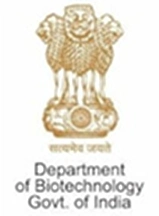Hypertrophic cardiomyopathy (HCM) is a genetic heart muscle disease with preserved or increased ejection fraction in the absence of secondary causes. Mutations in the sarcomeric protein-encoding genes predominantly cause HCM. However, relatively little is known about the genetic impact of signalling proteins on HCM.
inStem (Institute for Stem Cell Science and Regenerative Medicine)


 Research
Publications
Research
Publications Share
Share
